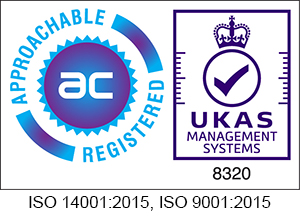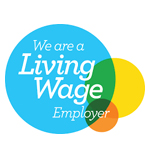Turtle armageddon and plastics are to blame
 The adverse effects humans have had on the environment are becoming ever more evident. The WWF have recently declared a state of emergency as global vertebrate populations have declined by a catastrophic 60%. Although this can be attributed to a range of issues from climate change to hunting to deforestation, this distressing decline is largely due to the monstrous amount waste we accumulate and the often careless ways it is disposed of. It is thought that there is more microplastic in the ocean than there are stars in the Milky Way, microplastic has now even been found in the furthest reaches of the Arctic. These findings are pretty hard hitting, but it's still hard to see the direct effects of plastics when living in a city.
The adverse effects humans have had on the environment are becoming ever more evident. The WWF have recently declared a state of emergency as global vertebrate populations have declined by a catastrophic 60%. Although this can be attributed to a range of issues from climate change to hunting to deforestation, this distressing decline is largely due to the monstrous amount waste we accumulate and the often careless ways it is disposed of. It is thought that there is more microplastic in the ocean than there are stars in the Milky Way, microplastic has now even been found in the furthest reaches of the Arctic. These findings are pretty hard hitting, but it's still hard to see the direct effects of plastics when living in a city.
I have worked as an in-house marketing executive at Janitorial Express for almost 3 years and over that time have been extremely lucky to be supported in my passion for the planet. Having previously gained a degree in Zoology I was very excited to be offered an opportunity to assist in the rehabilitation of sea turtles in the Great Barrier Reef. On the 13th July 2018 I began my journey to the other side of world to volunteer at a rehabilitation centre for sea turtles on Fitzroy Island off the coast of Cairns. The Cairns Sea Turtle Rehabilitation Centre rescues and rehabilitates turtles as they fight a seemingly losing battle with climate change and dreaded plastics! My volunteering coincided perfectly with our new cradle to cradle accredited Greenspeed products which aim to reduce single use plastics and microplastics.
The trip was a real eye opener for a number of reasons. On my first day I learned that turtles can in fact feel through their shells and love a back scrub, which also helped get rid of any algae build up on the shell. I was amazed by the different personalities that made each turtle individual and many volunteers quickly had favorites. I found that prawns were a favorite snack but as some turtles were so sick food would have to be cooked and peeled, squid back bones removed and each food item was to be hand fed and the number counted.
One of the things that struck me is just how badly waste plastics are effecting marine (and land!) animals. Researchers believe that over 50% of turtles have consumed plastics, a statistic that is reflected at the sanctuary. The majority of turtles undergoing treatment at the centre had been found starved, injured and floating on the ocean surface or washed up on beaches. The cause is often Floaters Syndrome, which occurs following a build-up of gas in the turtles body when the gastrointestinal tract is blocked and inhibits digestion, primarily caused by the ingestion of plastics. This prevents turtles from diving to feed or escape predation by sharks or crocodiles, many are hit by passing boats which causes severe damage to their shell, often proving to be fatal. Even under the care of the team at the sanctuary recovery from this condition can take over 3 years.
Perhaps even more shocking is that almost every turtle currently at the sanctuary is there as a result of human activity. One case involved a turtle named Louis who had found himself at the centre as he had been caught up in a ghost net (A net lost or discarded from sea trawlers) After getting caught up in the net Louis sustained injuries that lead to the loss of two of his flippers. Despite this, Louis was still being rehabilitated with the hope of release back into the wild.
 Following my trip I hope to be able to help raise awareness of the issues plastics are causing all over the world, something that's already happening following The fantastic Blue Planet documentary. It's excellent to see that the world is waking up to the damage that has been caused, the public are more educated on what they can do to help, companies are working to make their industries more eco-friendly and new laws, I hope, will begin to pathe the way to more ecologically friendly living.
Following my trip I hope to be able to help raise awareness of the issues plastics are causing all over the world, something that's already happening following The fantastic Blue Planet documentary. It's excellent to see that the world is waking up to the damage that has been caused, the public are more educated on what they can do to help, companies are working to make their industries more eco-friendly and new laws, I hope, will begin to pathe the way to more ecologically friendly living.







